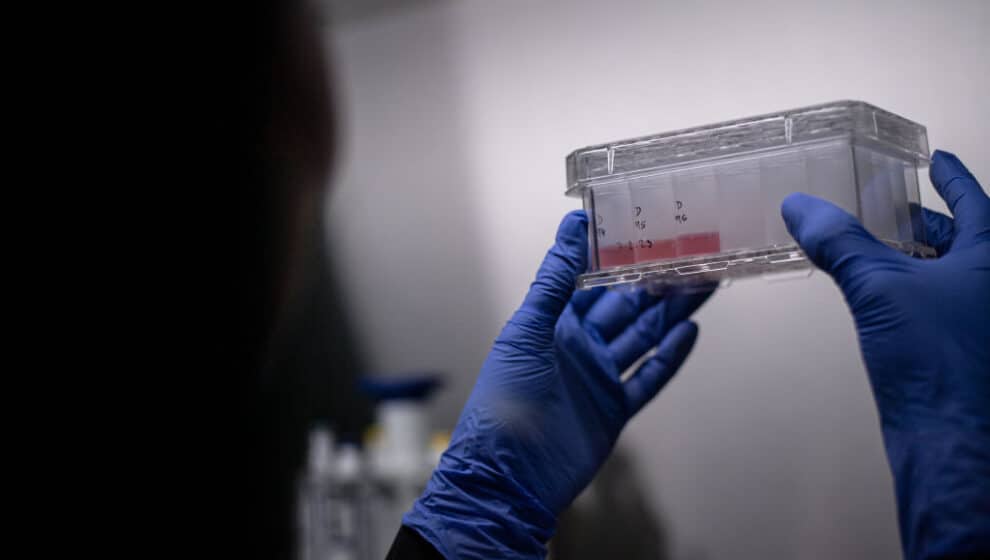Artificial intelligence (AI) researchers have found a way to use their technology to create new cancer treatments.
Key Details
- A joint study from the University of Toronto and Insilico Medicine was published in Chemical Science, showing that artificial intelligence (AI) software was able to discover a potential cancer treatment for the most common form of liver cancer.
- Researchers used Pharma.AI to discover a new treatment by connecting it to an AI protein structure database called AlphaFold, according to The New York Post.
- The software was able to discover and synthesize a new hepatocellular carcinoma treatment within 30 days.
Why It’s Important
The AI revolution has drawn many negative concerns, as fears of deep fake technology, disinformation, job disruption, and academic cheating have proliferated. Technology can be very dangerous in the wrong hands, but in the right hands, it can produce nearly miraculous feats of scientific innovation at a rate humans cannot compete with.
“This paper is further evidence of the capacity for AI to transform the drug discovery process with enhanced speed, efficiency, and accuracy. Bringing together the predictive power of AlphaFold and the target and drug-design power of Insilico Medicine’s Pharma.AI platform, it’s possible to imagine that we’re on the cusp of a new era of AI-powered drug discovery,” says chemist Michael Levitt.
Key Takeaways
Innovations of this sort are just the beginning. AI could completely change the way scientific and medical research is approached, using similar generative AI programs to expand the range of disease prevention and discover thousands of treatments for deadly diseases, without the cumbersome process of trial and error.
AlphaFold previously made a breakthrough in 2020 by successfully predicting the protein structure of the human genome, proving that AI technology is only just at the cusp of medical applicability, The Post notes.
“At Insilico Medicine, we saw that as an incredible opportunity to take these structures and apply them to our end-to-end AI platform in order to generate novel therapeutics to tackle diseases with high unmet need. This paper is an important first step in that direction,” says Insilico CEO Feng Ren.
Notable Quote
“This work represents the first example of successfully utilizing AlphaFold predicted protein structures for hit identification for a novel target. Further applications of this approach to other target classes such as GPCR and E3 ligase are ongoing,” says the study.
